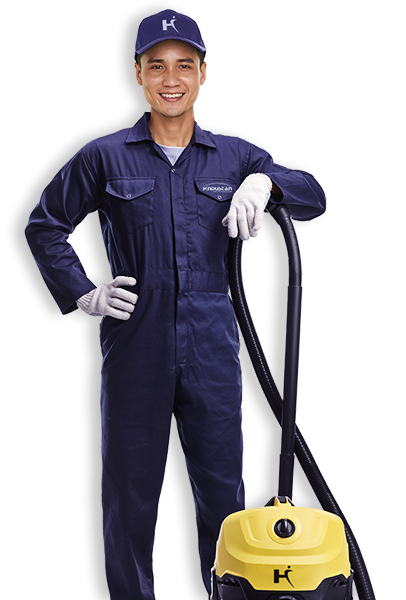I. Introduction In the contemporary workspace, the health and safety of employees have become paramount. This article explores the critical role of deep cleaning in mitigating occupational health hazards, a facet often overlooked yet essential for maintaining a healthy work environment.
II. Understanding Occupational Health Risks Occupational health hazards in the workplace range from airborne allergens and bacteria to chemical pollutants. These can lead to a myriad of health issues, including respiratory problems, skin irritations, and heightened risk of infections. In sectors like manufacturing, healthcare, and food service, the risks are even more pronounced due to the nature of the work and the environment.
III. The Science of Deep Cleaning Deep cleaning is a thorough cleaning process that removes dirt, dust, pathogens, and other contaminants from the workplace. Unlike regular cleaning, deep cleaning targets the more profound, often overlooked areas, such as air ducts, high shelves, and beneath heavy equipment. This level of cleaning is crucial in environments where sterility is a priority, like healthcare settings, or in industries where dust and chemicals pose a significant risk.
IV. Deep Cleaning and Health Benefits Engaging in regular deep cleaning routines can significantly reduce workplace contaminants. This leads to improved air quality, reduced spread of infectious diseases, and a lower incidence of allergy and asthma triggers. Moreover, a clean work environment can positively impact mental health, reducing stress and anxiety levels among employees.
V. Deep Cleaning Techniques and Best Practices Key techniques in deep cleaning include using HEPA filters, which are highly effective at trapping airborne particles, employing steam cleaning for chemical-free sanitation, and focusing on high-touch areas to reduce the spread of germs. Best practices involve a regular deep cleaning schedule, using eco-friendly and non-toxic cleaning agents, and ensuring cleaning staff are well-trained and equipped with the right tools.
VI. Regulatory Standards and Compliance In India, several regulations and guidelines dictate workplace safety and hygiene, including the Factories Act and the Occupational Safety, Health and Working Conditions Code. Adherence to these standards is not just a legal requirement but also essential for safeguarding employee health and avoiding potential liabilities.
VII. Challenges and Solutions One of the main challenges in maintaining high cleanliness standards is the size and complexity of facilities. Large industrial spaces or multi-story office buildings can be challenging to clean thoroughly. Solutions include segmenting cleaning tasks, using automated cleaning equipment like robotic vacuums, and hiring specialized cleaning services for more complex tasks.
VIII. Conclusion Deep cleaning is not just a cleaning exercise; it’s an investment in the health and well-being of employees. As businesses continue to navigate the complexities of maintaining safe and healthy workplaces, the importance of deep cleaning and its role in mitigating occupational health risks becomes ever more apparent. By incorporating deep cleaning into regular maintenance routines, companies can create safer, healthier, and more productive work environments.



